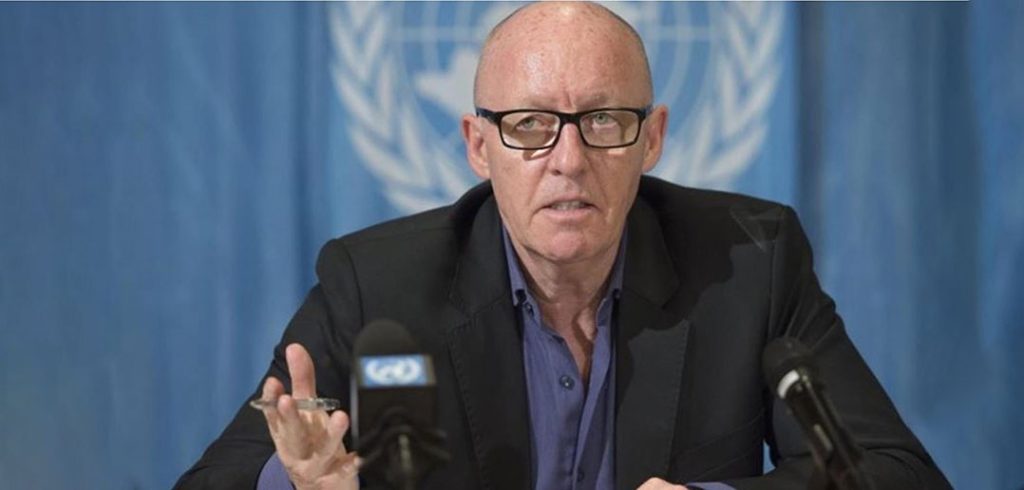Jamie McGoldrick, a Distinguished Fellow at Fordham’s Institute of International Humanitarian Affairs (IIHA), was named the interim deputy special coordinator and resident coordinator, Office of the United Nations Special Coordinator for the Middle East Peace Process (UNSCO) on Dec. 22, 2023.
McGoldrick, a lecturer, author, and expert in international law, the Middle East peace process, and humanitarian aid, previously held the position of deputy special coordinator, resident coordinator, and humanitarian coordinator in UNSCO, from 2018 to 2020, when he was replaced by Lynn Hastings.
Hastings stepped down in early December, and McGoldrick was asked to oversee relief efforts in Gaza and the West Bank until a permanent replacement can be found.
McGoldrick said that previous experience gives him a good sense of who he’ll have to work with to successfully deliver aid to the region. The Oct. 7 attack by Hamas on Israel, and the resulting war that has raged in Gaza since then, has radically changed the reality on the ground, but the major players are in many ways the same, he noted.
“It will be a challenge taking on a job like this, but I know the context, and I think I can work in that context, especially with the national and international staff in place,” he said.
“I believe that if there’s goodwill with all the people that you work with, then you can optimize what you’re trying to do. And I hope to work with all the different constituencies to try and get them to be receptive towards the humanitarian endeavor.”
A Focus on Current Needs
McGoldrick said he’s focused on getting aid to the residents of Gaza as soon as possible. A U.N. report issued on Dec. 21 laid out how dire the stakes currently are there, noting that half of residents there are on the verge of starvation.
“When you get a crisis or a disaster of this kind, you have to plan for prioritization and quick expansive response in order to try and save lives and protect people,” he said.
In April 2020, McGoldrick reflected on the challenges of working in the region, in the fifth installment of the Ireland at Fordham Humanitarian Lecture Series. At the time, he noted how excruciatingly difficult it is to separate politics from relief work in the region, but how it’s absolutely paramount. That’s still true today.
“No matter what happens at the end of this conflict, there will be community structures, groups and leaders, and authorities who will want to work with the people,” he said.
“We just have to try and find out how we can locate those and use them to try and mobilize.”
Sharing Insights with Students
As an instructor in the IIHA’s International Diploma in Humanitarian Assistance program, McGoldrick will share his insights with students at Fordham when he finishes his current assignment. He currently does so via the podcast Humanitarian Fault Lines.
“There’s a lot of theory and policy that people should understand, but I think people learn more from case studies and stories,” he said.
“If you tell somebody a story about an individual who was in a crisis or a conflict, and how their life was affected, and then changed and improved, people remember that more.”
Ultimately, he said, a humanitarian aid worker is only successful if a level of trust exists among people on all sides of a conflict.
“That is where it makes a difference because somebody might not agree with what you do immediately, but you can get them to understand why you’re doing it,” he said.
“I think that’s the approach that you have to adopt. Otherwise, it’s just sides rubbing against each other, and that doesn’t help anyone.”

